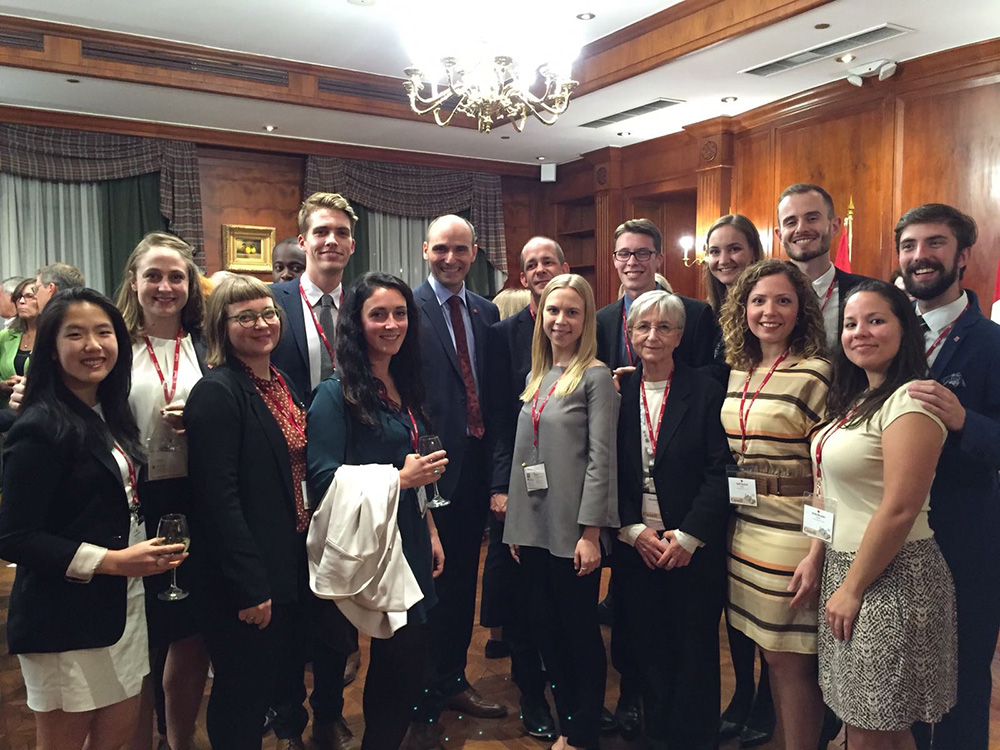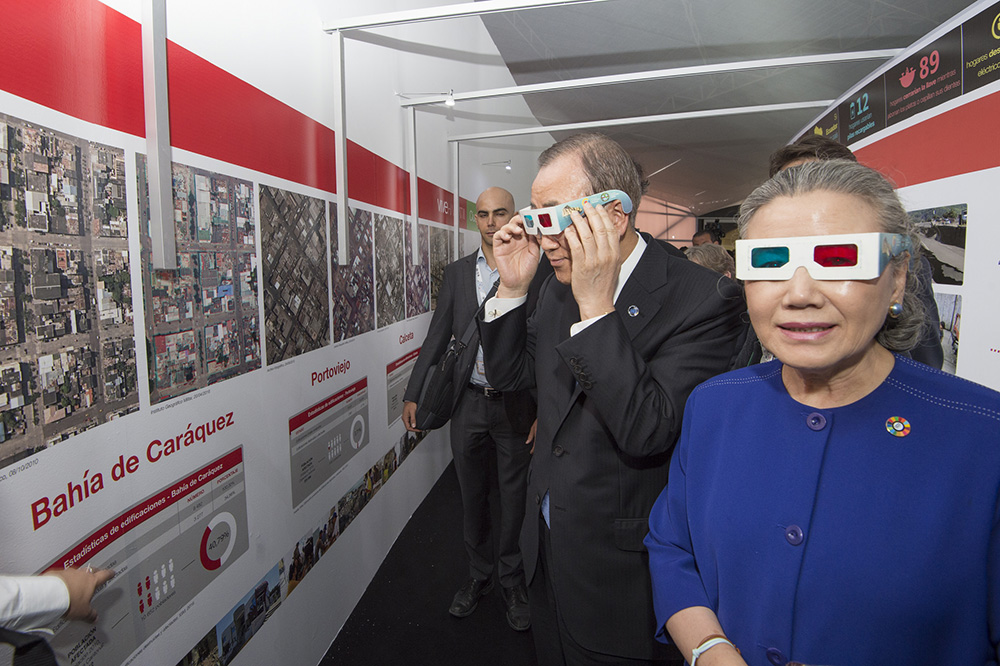In October, I proudly attended the United Nations Conference on Housing and Sustainable Urban Development as part of an academic group from the School of Community and Regional Planning at UBC.
The involvement of our group took nearly a year of building partnerships and finding ways to contribute to the convergence of voices and ideas. Along the way, the federal Ministry of Families, Children and Social Development invited us to join the official Canadian delegation. This was a privilege not enjoyed by students from other countries — and a gesture that modelled inclusiveness for the international gathering of 40,000 participants in Quito, Ecuador.
“Canada is back” was a happy slogan I heard often in chatting with other foreign delegates about the severity of challenges facing cities globally. Perhaps it recognized our standing as the largest official delegation, but Canada did not showcase its accomplishments in extravagant exhibition booths and networking events as many other nations did. Rather, our delegation largely shied away from the microphone, choosing to spend most of our time listening rather than talking.
What we heard from many advocacy groups was a call for states to honour the right to housing for their communities. The demand has been galvanized by the efforts of Leilani Farha, the Canada-based UN Special Rapporteur on housing, to build a global network of groups pursuing that right — a far more feasible collaboration now than it would have been at the last Habitat conference in 1996.
Surprisingly however, despite the advances in technological connectivity since then, the central conversations of Habitat 2016 were still largely inaccessible to anyone outside of the secured conference compound. Evidently the UN is in budget crisis, UN Habitat even more so, and the potential digital democratization of deliberation was unavailable in Quito.
In a related shortcoming, the conference lacked opportunity for attendees to provide input into its official declaration, dubbed the New Urban Agenda. Instead the document was drafted and agreed upon by national representatives before the conference even started. Some touted this as evidence of the success of pre-conference negotiations. Others saw it as defeating the gathering’s primary purpose: to allow direct input from civil society, local governments and global citizens in the formation of a statement meant to guide global planning efforts for the next 20 years.
Absent wider input and subject to a politically charged consensus process, the concluding document ended up as a watered-down statement that lacked the boldness needed to empower visionary strategies to address our most pressing urban issues. The New Urban Agenda’s ambiguous language steered clear of contentious political issues, protecting its national government authors. We were dismayed to find, for instance, that all language recognizing LGBTQ2S populations globally had been removed from the declaration at the urging of an alliance of conservative states with poor human rights track records.

On this point, at least, Canada spoke out. Vancouver-based activists composed and shared a Queer declaration. Minister Jean-Yves Duclos, leader of our delegation, led a panel that sought to raise awareness on the desperate circumstances faced by many in the LGBTQ2S community. He was joined by the U.S. Secretary of Housing and Urban Development Julian Castro, two impassioned community activists from Latin America, and others who shared insights on how to make cities more inclusive.
As NGO leaders and local governments called for attention to urban issues, many national governments, including ours, hesitated to make firm commitments.
The world continues to urbanize, raising demands on local governments and NGOs. But in Canada, as in many other countries, there has been a devolution of responsibilities from senior to local governments, typically without matching power or fundraising capacity. Without resources, cities struggle to keep up with the growing challenges.
What matters most now is how we move forward from the third global Habitat conference. How can local governments give greater attention to the needs of marginalized groups including urban First Nations, LGBTQ2S individuals, women, youth and migrants who are denied their “Right to the City”? How can the federal government work more closely with cities, regional and provincial governments, to ensure long-term funding for key investments in housing and transportation?
And deeper questions loom. How would Canadian society change if we honoured the right to housing as we do the right to health care? What if housing were no longer commodified for investment to the extent it is today? And what does it really mean for our city, Vancouver, to be a “city of reconciliation”? Could it open up a shift in paradigm toward the decolonization of Canada as a whole?
These questions highlight Canada’s potential to be a global leader in redefining how our cities can better work for all residents. But if the future of civilization is indeed in our rapidly growing cities (and it increasingly looks that way), then we have much work to do. ![]()
Read more: Rights + Justice, Politics















Tyee Commenting Guidelines
Comments that violate guidelines risk being deleted, and violations may result in a temporary or permanent user ban. Maintain the spirit of good conversation to stay in the discussion.
*Please note The Tyee is not a forum for spreading misinformation about COVID-19, denying its existence or minimizing its risk to public health.
Do:
Do not: